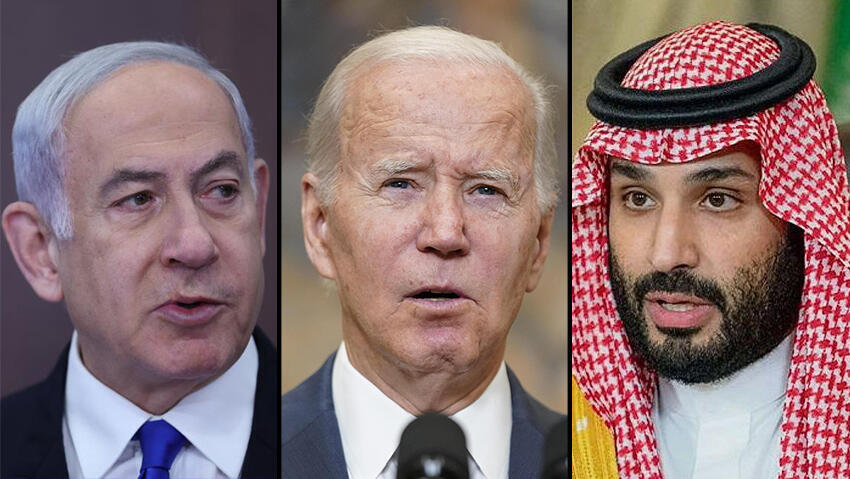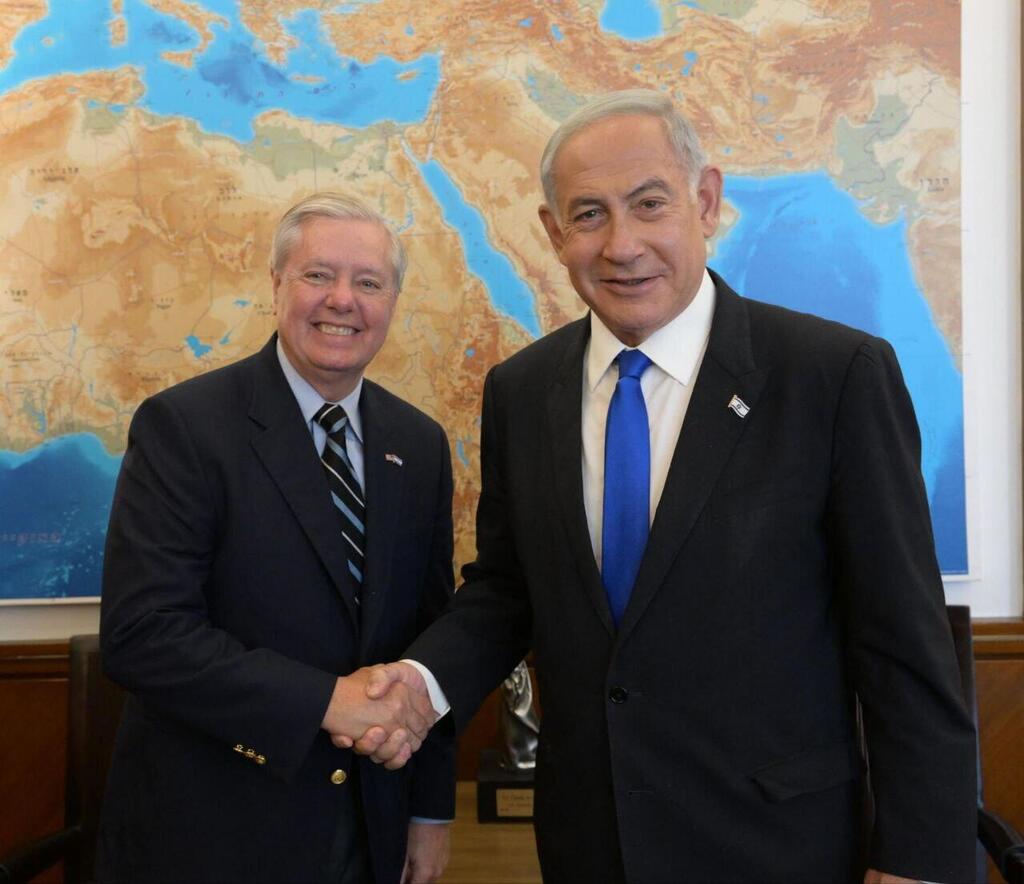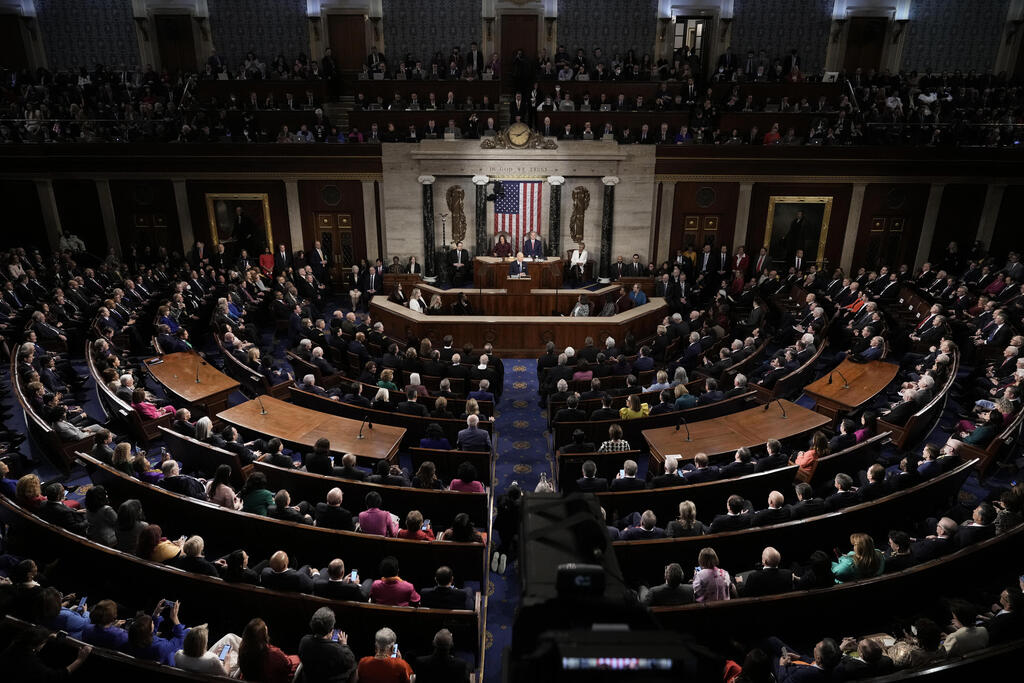In the near future, an unusual turn of events could unfold, in which the government of Prime Minister Benjamin Netanyahu champions the cause of the Biden administration. The goal? To persuade the U.S. Senate to endorse a budding pact between the U.S. and Saudi Arabia, the kind that includes mending ties with Israel.
ISRAEL EASING ENTRY FOR GAZAN AMERICANS
Read more:
An high-ranking Israeli representative linked the recent U.S. stance toward the Israeli administration with the multiple stipulations presented by the Saudis during their discussions with the Americans. This insider believes the U.S. mishandled its relationship with Israel, particularly concerning public optics: the choice to exclude Netanyahu from a Washington visit, openly criticizing judicial reform, and other contentious matters.
3 View gallery


An interesting dynamic may evolve between US, Israel and Saudi Arabia
(Photo: Reuters, AP)
He believes that such actions inadvertently gave the Arab nations an impression that Israel lacks U.S. backing. This perception, which originally facilitated the momentum toward normalization, has indirectly emboldened the Saudis to present extensive demands. This sentiment is further fueled by the Saudis' frustration over the U.S. approach toward appeasing Iran.
Realities on the ground indicate that Israel's significance to the U.S. has surged considerably. The bond, encompassing intelligence, security and economic facets, is arguably the strongest it has ever been. On the other hand, the Saudis are adamant about having a defense pact, wherein the U.S. commits to defending the Saudis against potential Iranian threats.
Such a defense agreement necessitates the nod of a significant Senate majority – specifically, approval from 67 senators. While the Biden administration holds a slim Democratic majority in the Senate, it falls short since several senators are opposed to the deal and maintain a starkly critical stance.
In practice, even if all the Democratic senators support the agreement, Biden will still need the backing of at least 17 Republican senators. With election season beginning to warm up, Republicans don't even agree with Biden on whether water is wet.
Interestingly, Israel may step in to support the Biden administration in this endeavor. Even though a U.S.-Saudi deal isn't finalized, the Biden administration aims to seal it by spring 2024. This suggests that the agreement could be presented to Congress in the next few months.
In Israel, there's concern that the Saudi crown prince, Mohammed bin Salman, might delay and consider pushing the U.S. agreement until after the 2024 presidential elections.
Israel has sent signals to Saudi Arabia emphasizing the advantages of forging ahead under the current Democratic regime. If a future Republican government, possibly under the leadership of former President Donald Trump, were to take over, bridging bipartisan support for the deal might become an uphill battle.
With Trump in charge, anticipated opposition from the Democrats could stifle the move, making it tough to rally a 67-lawmaker majority. However, with Democrats in power now, Israel is in a position to rally both comprehensive Democratic and some Republican endorsements.
3 View gallery


Prime MInister Benjamin Netanyahu and Sen. Lindsey Graham in Jerusalem
(Photo: Amos Ben-Gershom)
Recently, top Republican Sen. Lindsey Graham, after stops in Riyadh and Jerusalem and voicing strong support for Saudi-Israel normalization, said that he would support the Biden administration plan to meet Saudi prerequisites, culminating in Saudi Arabia formally acknowledging Israel.
Beyond a defense pact, the Saudis also have raised requests with the US for civilian nuclear capabilities, advanced weaponry, and beyond. Israeli agreement would be crucial for these components. Historically, Israel has been wary, particularly regarding the nuclear aspect.
Foreign Minister Eli Cohen told Ynet and sister publication Yedioth Ahronoth: "The U.S. has an interest in promoting a peace agreement between Saudi Arabia and Israel, as it will contribute to regional stability, reduce energy prices, and would be a significant achievement for President Biden ahead of the elections."
He added that "Saudi Arabia also has an interest in such an agreement just as much as Israel does, as it will help her face her central threat - Iran, and will open the door to new opportunities for economic and technological collaboration with Israel. The prime minister is leading the discussion with the Americans, and I estimate that other Muslim countries from Africa and Asia will join such an agreement."





